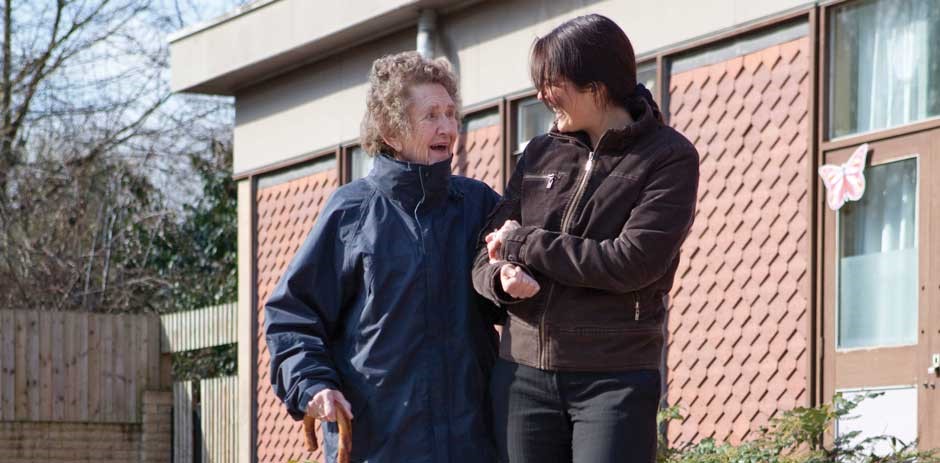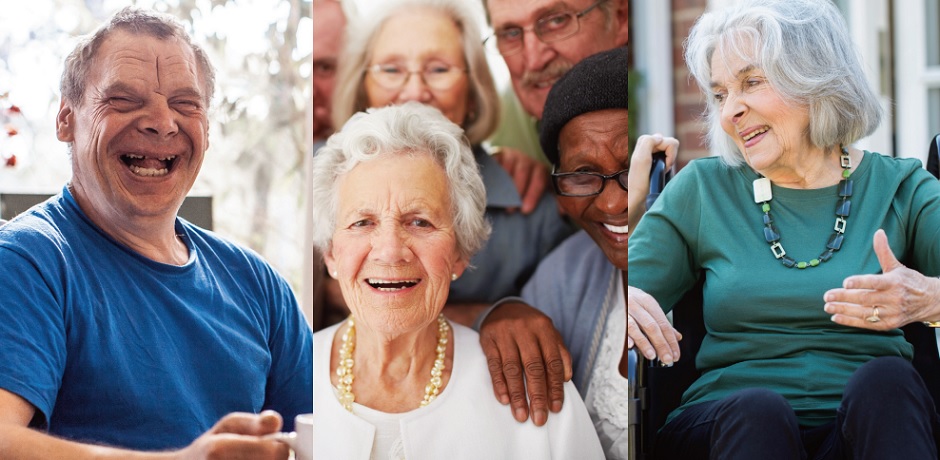)
Voluntary roles in adult social care settings
The use of voluntary roles in adult social care settings does not constitute a ‘free’ service, study finds
Volunteers are making a substantial contribution to the provision of care and support services for older people, research shows
Volunteer roles need ongoing support and adequate resourcing and do not constitute a ‘free’ service, a study by researchers led by Ailsa Cameron at the University of Bristol has concluded.
The study found that volunteer roles require clear recruitment and management structures, training and support , and recognition, just like paid workers.
The findings from the study, undertaken in partnership with Bristol’s voluntary, community and social enterprise sector development agency Voscur, contradict the idea that there is an ‘army of volunteers’ that can be called on to aid the delivery of social care on a consistent basis. This is a result of a number of factors, including increased intergenerational care and later retirement.
Exploring the role of volunteers in adult social care
To explore the use of voluntary roles in adult social care settings, researchers carried out 94 interviews with volunteers, volunteer managers or coordinators, care workers, and older people receiving care in seven care settings in South West England.
People were asked about the different ways volunteers contribute to the provision of care in their organisation, how central volunteer roles are to the organisation, the importance of volunteer contribution, and how volunteers are supported and valued.
The contribution of volunteers
The study identified three different ways in which volunteers were contributing to service provision: as a supplement to the existing service, as a discrete free-standing service, and to fill gaps in provision.
Differences in the model led to variability in the understanding of volunteer roles. Where they provided a discrete service volunteer roles had clear boundaries which were different from the boundaries of paid care worker roles, however in services where volunteers appeared to be filling gaps in provision there was much less clarity.
The contribution of volunteers was most valued, both for the organisation and older people receiving services, when volunteers were able to commit to the service on a regular and consistent basis, and when there are clear boundaries between the volunteer role and that of paid care workers.
Support for volunteers
Most volunteers were positive about their experiences of volunteering. Some volunteers reported that they found any additional training they were expected to undertake beyond their initial training to be onerous; at three sites there was minimal or no training provided to volunteers.
Cameron, who led the study, said: “The findings show that social care organisations recognise and value the substantial contribution volunteers are making to the provision of care and support services for older people. Volunteer contributions in older adult care settings are most effective when they are regular and consistent, there are clear aims and objectives, and there is accessible and proportionate training”.
A senior social work practitioner said: ‘The findings provide important insights for social care commissioners, particularly in relation to factors that influence the quality of the contribution that volunteers can make’.
Another senior social work practitioner involved in the study said: ‘At a time when the expansion of volunteering is so frequently regarded as an appropriate response to shrinking resources and rising demand, [these findings] provide a timely reminder that volunteers are themselves a limited and precious resource that must receive proper investment’.
Full summary findings
NIHR SSCR (2020) Exploring the Role of Volunteers in Care Settings for Older People (ERVIC), Research Findings 119, NIHR School for Social Care Research, London.
Further information
This study was funded by the NIHR School for Social Care Research and led by Ailsa Cameron at the University of Bristol.
The findings were completed before COVID-19 and have been published to support NIHR SSCR’s requirement that findings from all completed studies are made publicly available.
















